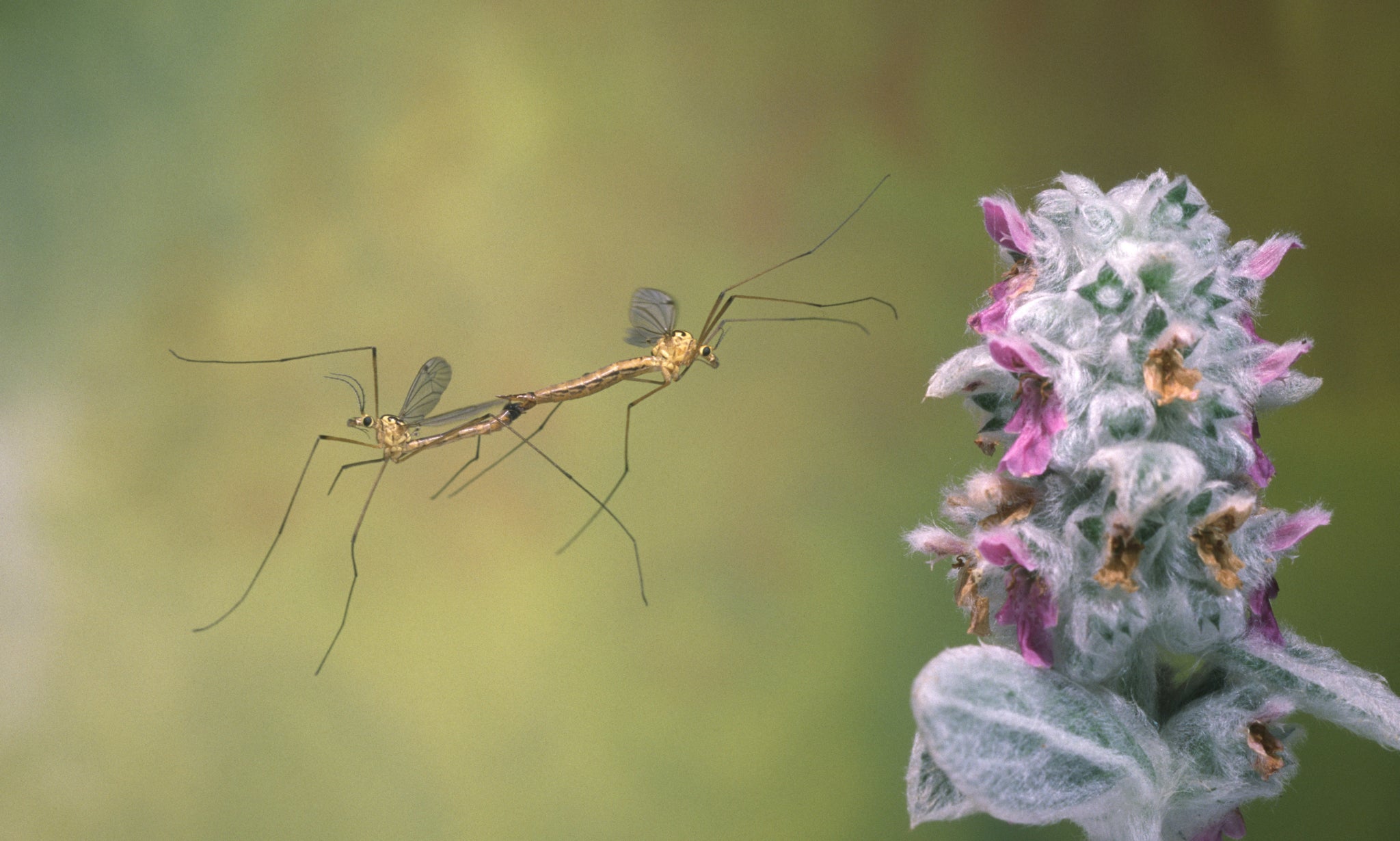Will we see record numbers of insects in Britain this autumn?
Daddy longlegs, house spiders and fruit flies all typical thrive in late summer

Your support helps us to tell the story
From reproductive rights to climate change to Big Tech, The Independent is on the ground when the story is developing. Whether it's investigating the financials of Elon Musk's pro-Trump PAC or producing our latest documentary, 'The A Word', which shines a light on the American women fighting for reproductive rights, we know how important it is to parse out the facts from the messaging.
At such a critical moment in US history, we need reporters on the ground. Your donation allows us to keep sending journalists to speak to both sides of the story.
The Independent is trusted by Americans across the entire political spectrum. And unlike many other quality news outlets, we choose not to lock Americans out of our reporting and analysis with paywalls. We believe quality journalism should be available to everyone, paid for by those who can afford it.
Your support makes all the difference.Autumn is always a boom time for insects in British gardens, with daddy longlegs, house spiders and fruit flies emerging in droves to relish the season and upset the squeamish.
But it has been suggested that this year’s erratic summer weather - which saw heatwaves in England followed by weeks of warm but overcast conditions and sudden burst of torrential rainfall while Scotland and Northern Ireland basked in record temperatures - could cause an even bigger population explosion than usual.
The first half of September, marked by a further three-day mini heatwave and then yet more rain, is thought to be particularly ideal for the encouragement of daddy longlegs, a species of crane fly that emerges from our lawns between August and October every year as the weather cools, dew forms on the grass and morning mist gathers.
The entomology charity BugLife has previously estimated that the total number of daddy longlegs in Britain every autumn is around the 200bn-mark, although it is extremely difficult to get a true sense of the national picture.
The NGO’s chief executive Matt Shardlow casts doubt on the idea that insect numbers are higher than usual in 2021 but told The Independent: ”My personal impression is that numbers were very low in late July to mid-August and have picked up a bit more recently. But people in different localities are reporting different experiences.”
It’s certainly true that you get a different answer depending on whom you speak to.
Professor Simon Leather, an entomologist at Harper Adams University, tells The Independent that, “as far as I am aware, insect numbers are actually lower than normal at the moment” and that although there are a high number of daddy longlegs visible at the moment, their number is “normal for this time of year”.
By contrast, Dr Christopher Terrell-Neild of Nottingham Trent University told The Sun this week: “I have already noticed more crane flies buzzing around than usual. The eggs develop slowly as larvae over the winter and, normally, a lot of them die. But if the winter is not too cold and the spring is damp as well it’s quite likely that more will emerge.”
Also convinced is biologist Professor Dave Goulson of Sussex University, who told The Daily Telegraph: “Plant growth has been really lush this summer, so roots underground will be particularly tasty for the leatherjackets [daddy longlegs larvae].”
If we are seeing more insects than usual as the season begins to turn, this summer’s weather is one possible explanation for the phenomenon.
Others might be an increasing aversion to the use of toxic pesticides in crop cultivation or the trend among gardeners to leave lawns and grass verges uncut, farms setting aside meadowland and town councils placing wildflower boxes in town centres and parks to encourage their arrival.
Speaking to The Independent, Professor Helen Roy, president of the Royal Entomological Society, said that insect numbers tend to fluctuate every year, with each species having “slightly different requirements” and vulnerable to knock-on impacts from elsewhere in the natural ecosystems in which they live.
This underlines the importance of long-term data sets in establishing the health of a given species, she says, paying tribute to the “amazing legacy of volunteer biological reporting”, an area that has grown and grown over the last 18 months thanks to people “noticing more of the world around them” in lockdown and taking a greater interest in biodiversity and conservation.
On the prevalence of daddy longlegs, Professor Roy says they are much misunderstood and pose no threat to humans whatsoever - and might actually have a positive impact on an individual’s wellbeing if they took a moment to observe the species’ elegant movements rather than recoil in horror.
Brian Eversham, chief executive of the Bedfordshire, Cambridgeshire & Northamptonshire Wildlife Trust, spoke equally warmly of spiders, currently enjoying their mating season, telling ITV News that instead of fearing them, “I think people should be grateful for them - for all the insects they kill.”
Those determined to deter bugs this autumn are advised to store their fruit in the fridge rather than in countertop bowls, not leave windows open with the light on (even on mild evenings), maintain garden ponds and keep their birdfeeders topped up to encourage the birds that will feed upon them.
Those seeking to encourage insects into their gardens are meanwhile advised to refrain from mowing, leave leaf litter undisturbed beneath plants, bushes and trees and make bamboo bee houses available where possible.
Window boxes on balconies are also likely to prove an irresistible attraction.



Join our commenting forum
Join thought-provoking conversations, follow other Independent readers and see their replies
Comments